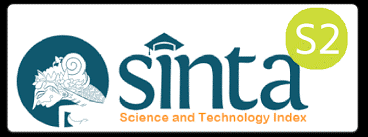Education And Maternal Self-Confidence In Caring For Premature Babies
DOI:
https://doi.org/10.35730/jk.v15i2.1140Keywords:
Premature Babies, Discharge Planning, Health EducationAbstract
Background: The high number of preterm births in 2014-2015, Indonesia is one of the countries that contributes the highest premature rate of 19% and is a major factor in perinatal mortality. RSAB Harapan Kita West Jakarta has a rate of 3.46% about 105 mothers who gave birth to premature babies within 3 months. The formulation of this problem is the health of premature babies who need intensive and special care so that most of them can affect the self-confidence of the baby's parents.
Purpose: The purpose of this study was to determine whether there is a relationship between maternal education and maternal confidence in caring for premature babies at RSAB Harapan Kita, West Jakarta
Methods: This study used quantitative methods and used a cross sectional approach with 38 samples obtained by non-probability sampling method and total sampling technique.
Results: The results showed that there was no significant relationship between maternal education and maternal confidence in caring for premature babies with a p-value of 0.721 (? 0.05).
Conclusion: There are other factors apart by education that may affect mothers' confidence in caring for premature babies such as health education. Thus, the researcher suggests the future researchers to examine the effect of health education on the confidence of mothers in taking care of premature babies.
References
D.F. Hamzah, “Pengaruh Pemberian ASI Eksklusif terhadap Berat Badan bayi usia 4-6 Bulan di Wilayah Kerja Puskesmas Langsa Kota,” Jurnal Ilmiah Penelitian Kesehatan, vol. 3, no. 2, pp. 8–15, 2018.
U. R. Fadlliyyah, “Determinan Faktor yang Berpengaruh pada Pemberian ASI Eksklusif di Indonesia,” Ikesma, vol. 15, no. 1, p. 51, 2019, doi: 10.19184/ikesma.v15i1.14415.
G. Zhang, A. Srivastava, and J. Bacelis, “Best Practice & Research Clinical Obstetrics and Gynaecology Genetic Studies of Gestational Duration and Preterm Birth,” Best Practice & Research Clinical Obstetrics & Gynaecology, vol. 52, pp. 33–47, 2018, doi: 10.1016/j.bpobgyn.2018.05.003.
E. S. Asih and Y. D. Sagita, “Associated Factorst o Preterm Labor at Mother and Child Hospital of Anugerah Medical Centre Metro City In 2020,” Jurnal Maternal Aisyah, vol. 29, 2020.
D. Rachmawati, L. A. Marcelina, and I. Permatasari, “Hubungan Dukungan Sosial dengan Self-Efficacy Ibu Postpartum,” Jurnal Keperawatan JKEP, vol. 6, no. 2, pp. 160–172, 2021.
J. N. Arendt, M. L. Christensen, and A. Hjorth-trolle, “Maternal education and child health : Causal evidence from Denmark,” Journal of Health Economics, vol. 80, no. November, p. 102552, 2021, doi: 10.1016/j.jhealeco.2021.102552.
H. Rosyidah, R. V. Kususmasari, and D. N. Adkhana, “Relationship Between The Age of Pregnant Women and Premature Labor In Panembahan Senopati Regional Public Hospital , Bantul, Yogyakarta,” BMJ Open, vol. 6, no. 1, pp. 14–23, 2019.
B. T. Carolin and I. Widiastuti, “Faktor – Faktor yang Berhubungan dengan Kejadian Persalinan Preterm Di Rumah Sakit Muhammadiyah Taman Puring Kebayoran Baru Jakarta Selatan Periode Januari - Juni Tahun 2017,” J. Ilmu Keperawatan dan Kebidanan Nasional, vol. 1, no. 1, 2019.
N. Rudiyanti and Rosmadewi, “Hubungan Usia, Paritas, Pekerjaan dan Stress dengan Emesis Gravidarum di Kota Bandar Lampung,” Jurnal Ilmiah Keperawatan Sai Betik, vol. 15, no. 1, pp. 7–18, 2019.
W. F. Tiffani, Mayasari, and M. Rifai, “Implementasi Program Keluarga Berencana (KB) dalam Upaya Menekan Pertumbuhan Penduduk di Kelurahan Sumur Batu Kecamatan Bantar Gebang Kota Bekasi,” Jurnal Ilmu-Ilmu Administrasi Negara, vol. 7, pp. 525–540, 2020.
T. Sumiatin and W. T. Ningsih, “Peran Keluarga dalam Program Indonesia Sehat dengan Pendekatan Keluarga (PIS-PK) melalui Pelaksanaan Program Keluarga Berencana (KB),” Jurnal Ners dan Kebidanan, vol. 7, pp. 170–176, 2020, doi: 10.26699/jnk.v7i2.ART.p170.
Sriwahyuni, Sulastri, and I. Patabang, “Efektivitas Pemberian Alat Permainan Edukatif Origami Terhadap Perkembangan Motorik Halus Anak Di TK Frater Bakti Luhur Makassar,” Jurnal Ilmu Kesehatan Pencerah, vol. 09, no. 1, pp. 59–64, 2020, [Online]. Available: https://stikesmu-sidrap.e-journal.id/JIKP
R. V. Turnip, M. Sinabarira, and R. M. Manik, “Tingkat Pengetahuan Ibu Hamil TM II Tentang Pencegahan Bayi Berat Lahir Rendah ( BBLR ) di Klinik Helen Tarigan Medan Tuntungan Tahun 2021,” Journal of Healthcare Technology and Medicine., vol. 7, no. 2, pp. 1–9, 2021.
L. Mamuroh, Sukmawati, and R. Widiasih, “Pengetahuan Ibu Hamil Tentang Gizi Selama Kehamilan pada Salah Satu Desa di kabupaten Garut,” Jurnal Ilmu Keperawatan Sai Betik, vol. 15, no. 1, 2019.
F. D. Kurniati, "Hubungan Antara Pola Makan dengan Status Gizi Balita di Daerah Transmigrasi Ring I Trisik, Pantai Selatan Kulonprogo,” Jurnal Ilmu Keperawatan dan Ilmu Kesehatan Masyarakat Surya Medika, vol. 12, no. 1, 2017.
V. L. Edrin, Ariadi, and L. Irawati, “Gambaran Karakteristik Ibu Hamil pada Persalinan Preterm di RSUP Dr.M.Djamil Padang Tahun 2012,” Jurnal Kesehatan Andalas, vol. 3, no. 3, pp. 311–317, 2012.
S. K. Oktaviana, “Terapi Pemanfaatan untuk Menurunkan Tingkat Kecemasan Remaja Korban ekerasan,” Jurnal Psikologi Islam dan Budaya, vol. 5, no. 1, pp. 59–70, 2022.
A. Nilakesuma, Y. D. Jurnalis, and S. R. Rusjdi, “Hubungan Status Gizi Bayi dengan Pemberian ASI Ekslusif, Tingkat Pendidikan Ibu dan Status Ekonomi Keluarga di Wilayah Kerja Puskesmas Padang Pasir,” Jurnal Kesehatan Andalas, vol. 4, no. 1, Jan. 2015, doi: 10.25077/jka.v4i1.184.
I. Garti et al., “Mothers’ Experiences of Caring for Preterm Babies at Home: Qualitative Insights From an Urban Setting in A Middle-Income Country,” BMC Pregnancy Childbirth Journal, vol. 21, pp. 1–9, 2021.
R. Sarach and L. Rosyidah, “Psychological of Postpartum Mothers with Premature Babies : A Scoping Review,” Journal Midwifery and Reproduction, vol. 5, no. 1, 2021.
I. Achmad, “Pendidikan Kesehatan Menggunakan Leaflet dan Phantom untuk Meningkatkan Keterampilan Ibu Merawat Bayi,” Global Health Science Journal, vol. 7, no. 3, pp. 116–120, 2022.
R. C. Muis, Y. Arnita, and S. Atika, “Efikasi Diri Ibu Dalam Pemberian ASI Ekslusif di Kota Banda Aceh,” Jurnal Ilmiah Mahasiswa Fakultas Keperawatan, vol. VII, pp. 2–5, 2023.
M. Sentenac et al., “Maternal Education and Cognitive Development In 15 European Very-Preterm Birth Cohorts from the RECAP Preterm platform,” International Journal of Epidemology, vol.50, no. 6, pp. 1824–1839, 2021, doi: 10.1093/ije/dyab170.




